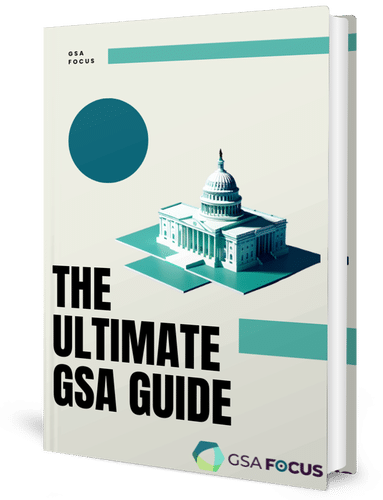(BPA): Buying recurrent goods and services, such as office supplies, tools and equipment, and electronic parts, is common for government agencies. Government agencies are aware of what they will need and require but may not be certain of the exact quantity or timeliness. With that, a Blanket Purchase Agreement, or BPA, may come in handy.
Notably, a GSA contractor can have a BPA under their GSA Schedule. The question now is: What is a BPA, and how can a GSA contractor establish one with a government buyer?
Definition of BPA
Table of Contents
ToggleA Blanket Purchase Agreement (BPA) allows a government buyer to streamline the process of procuring recurring goods and services from a group of GSA contractors. Government buyers can establish a BPA by specifying a fixed budget for an anticipated commodity or service.
Government contractors approved can then sell to government buyers until the agency’s BPA budget gets depleted. Unlike an Indefinite Delivery/Indefinite Quantity (IDIQ) contract, the design of BPAs is to acquire expected goods and services. Thus, immediate money for the agencies’ finite BPA budget is not required.
Alternatively, when funds are available and a government agency wants to buy right away, they can use the BPA to obtain any necessary solutions. Moreover, order frequency, invoicing, discounts, requirements, delivery locations, and time duration get specified in BPAs.
Types of BPA
Essentially, there are two types of BPAs in existence: Traditional BPAs and BPAs established under the GSA Multiple Award Schedule (MAS) Program. Either a traditional or MAS BPA can be employed to meet the anticipated demands of government buyers.
Traditional BPAs
Notably, Simplified Acquisition Procedures, Part 13 of the Federal Acquisition Regulations, governs traditional BPAs. According to these rules, a government buyer cannot use a conventional BPA to purchase products and services not covered by the Simplified Acquisition Procedures (SAP).
BPAs Under the MAS Program
SAP requirements do not apply to BPAs within the Schedules Program. BPAs under the Schedules Program are governed by Federal Acquisition Regulation (FAR) Part 8.405-3, Blanket Purchase Agreements, which specifies government buyers’ predilection for multiple-award BPAs against single-award BPAs.
How to Create Blanket Purchase Agreements for Government Buyers
When setting up a BPA, the government buyer must first establish whether they desire a single-award or multiple-award BPA. Single-award BPAs are less common, as the FAR prefers multiple-award BPAs because they encourage greater competition and, as a result, better prices.
Single-Award BPAs
When a government buyer establishes a single-award BPA, they only have one vendor to choose who must match the BPA’s specifications. A buyer must decide whether or not a single vendor can meet all of their needs to simplify the ordering process because the buyer only has to interact with one vendor. Furthermore, single-award BPAs can only get used for one year with a maximum of four option years.
Multiple-Award BPAs
BPAs having more than one vendor are known as multiple-award BPAs. When a government buyer finds that a single-award BPA will not meet their needs, multiple-award BPAs get used. If the requirements of a BPA are very extensive, multiple-award BPAs can also develop.
A government buyer can create as many BPAs as they need to satisfy their demands as long as they ensure that all vendors adhere to the BPA’s terms. Every order placed in a multiple-award BPA is competed for by a group of pre-selected contractors.
The government buyer benefits from this since they have more flexibility and bargaining power because it is more competitive. BPAs with several awards often last a little over five years.
How to Create Blanket Purchase Agreements for GSA Contractors
GSA eBuy and GSA Advantage are two sites where BPAs can be acquired. The distinction between these two platforms is that GSA Advantage displays existing contract holders with BPA, whereas GSA eBuy displays active BPA competitions for contractors on which to bid.
After bidding on BPAs in GSA eBuy, contractors can win them. Contractors must first have a GSA Schedule contract for the item or service for which they are bidding. Second, a contractor must demonstrate that their organization is financially stable and has a flawless Past Performance Report. Finally, and perhaps most crucially, a contractor must show that their price is “fair and competitive” by GSA standards.
It is important to note that buyers in the government will prefer to provide a BPA to a company that has a low yet reasonable price. Thus, GSA contractors can bid on these BPAs independently or employ a consultant to help them navigate the GSA Schedule system.
BPAs are also available for contractors who have a set-aside contract. Because they have fewer bidders, GSA contractors eligible for set-aside contracts have better chances of receiving a BPA.
Benefits of BPA
BPAs benefit both the government buyer and GSA contractors. Less administrative work, advanced planning, and a potential rise in volume sales are some of the advantages for GSA contractors.
Less Administrative Work
Because BPAs are Simplified Acquisitions, the contractor must complete less paperwork and do less administrative work. For the contractor, this saves both time and money. Specifically, GSA Schedule contractors only need to fill orders as they come in once the BPA gets signed. Additionally, because the government buyer has less administrative work, placing orders is quicker, resulting in more accessible cash circulation for GSA contractors.
Advanced Planning
Without a doubt, planning ahead of time makes for a less tense situation. GSA Schedule Contractors can use a BPA to predict how much of their goods and services will be required in the future and manage their supply chain and production process appropriately.
Increased Revenue from Volume Sales
Because government agencies with a BPA frequently buy in bulk, the possibility for increased revenue from increased sales volume is a big draw for GSA Schedule contractors. Furthermore, because BPAs are simple acquisitions that need little administrative work, contractors can focus on other opportunities while still benefiting from the BPA arrangement.
Conclusion
Government buyers can establish a BPA by specifying a finite budget for an anticipated item or service. Approved government contractors can then sell items or provide services to government customers until the BPA budget gets depleted.
Therefore, the Blanket Purchase Agreements ultimately give way to a more efficient procurement procedure for recurring commodities and services.



